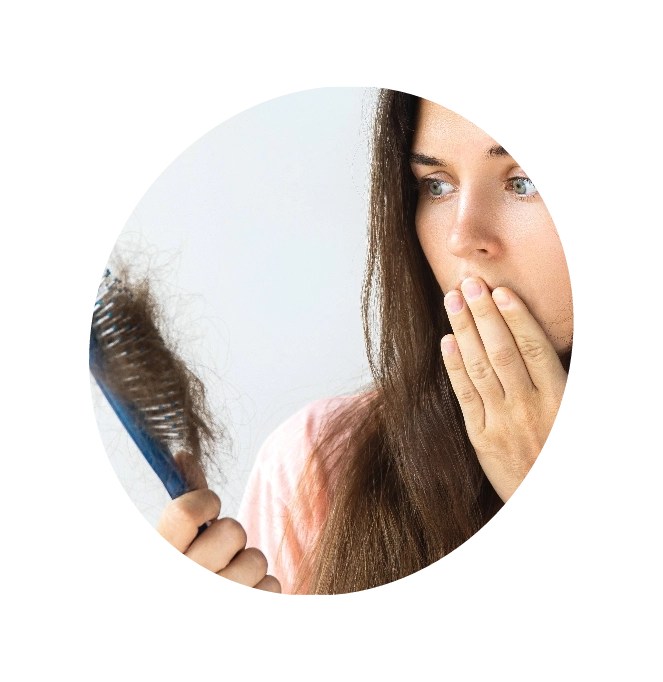About Hair Loss
Hair loss, known medically as alopecia, is a common disorder that can affect different parts of the body, especially the scalp. Normally, we lose 50 to 100 hairs a day. With this condition, the amount of hair that is lost is more than what is expected, and the lost hairs are not replaced.
The loss of hair may happen gradually over the years, or it can also happen abruptly. This can also be permanent, or it may be temporary, depending on the cause.
The American Academy of Dermatology Association has identified six types of hair loss. These are:
- Alopecia areata – This is an autoimmune skin condition that happens when the body attacks the hair follicles. This can occur as patchy baldness in the entire area of the body or just on the scalp.
- Central centrifugal cicatricial alopecia (CCCA) – This type of hair loss is most noticeable at the center or crown of the head. This is usually permanent and is more common in Black women.
- Female pattern hair loss – This condition usually starts affecting women in their 40s. However, it may occur later or earlier in life.
- Frontal fibrosing alopecia – This occurs like a receding hairline that affects the front and sides of the head.
- Male pattern hair loss – This is the leading cause of hair loss among men. This can begin in the late teens.
- Traction alopecia – This is a reversible form of hair loss that occurs when there is repeated pulling in the hair.
Hair Loss Causes
There are several causes that can lead to hair loss. It is important to know the factors leading to your hair loss so that the doctor will know how to address the condition properly. Here are the common causes of hair loss:
- Heredity – Family history or genetics is the leading cause of hair loss.
- Hormonal changes – Pregnancy and menopause may cause hair loss. This is due to the decrease in estrogen.
- Medical conditions – Thyroid diseases and some autoimmune disorders can contribute to the occurrence of hair loss.
- Medications – Alopecia can be a side effect of some medications, including chemotherapy drugs, antidepressants, anticoagulants, cholesterol-lowering medications, antihypertensive drugs, anticonvulsant medications, and anti-inflammatory drugs.
- Stress – When a person is stressed, a large number of hair follicles can be forced into their resting phase.
- Radiation – Any procedure or treatment using radiation can cause localized hair loss.
- Hairstyles and hair treatments – excessive hair styling and hair treatments can cause hair to fall out.
Symptoms of Hair Loss
Hair loss appears differently for each person, depending on the cause and the type of hair loss he has. The main sign of hair loss or alopecia is losing hair greater than the usual amount. However, this can occur in various ways.
Below are the signs and symptoms of hair loss:
- Gradual thinning at the top of the scalp
- Circular or patchy baldness
- Full-body hair loss
- Sudden loosening of the hair
- Scaly patches that can spread over the scalp
While hair loss is uncommon in children, shedding of the hair may occur to them abruptly. This can be due to various medical conditions, such as ringworm and immune system issues. Severe and rapid weight loss, anemia, and stress can also be among the causes.
If the hair loss becomes excessive and it causes distress, you must consult a doctor. For parents or guardians, it may also be necessary to seek medical advice if the hair loss when combing or washing the hair is more than usual.
How to Treat Hair Loss?
Certain types of hair loss can be prevented, whereas some are not avoidable. If your hair loss is due to an underlying condition, you must treat the root cause first. There are various forms of treatment available that can reverse or slow down hair loss.
The common ways to treat hair loss are:


